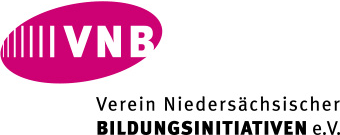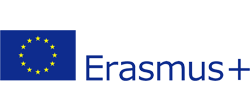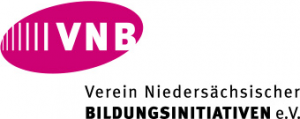OUR PARTNERS







Resource Center for Integration (VIFIN) is a knowledge and research center at the Municipality of Vejle established in 2002 to collect and process knowledge on integration, and to develop and implement integration projects and activities.

VIFIN has established its leadership in Denmark in using digital-based technologies in education, mainly in language learning and integration. VIFIN has years of experience working with learning through gamification, e.g. through digital serious games for young people and adults and robot programming in public school.
Furthermore, VIFIN has coordinated and partnered in a range of different projects both funded nationally and internationally (e.g., the EUC) on various aspects of digital language, cultural diversity and social inclusion.
The School, Community and Company Consortium (CSCI) is a Vocational Training Agency, authorized by the Piedmont Regional Government, which holds UNI EN ISO 9001:2008 certification. It was created as a joint venture between the world of work (Italian and Hungarian private companies), the school world (Italian Schools and University) and the civil service (Municipality of Novara, Municipality of Cameri Foundations, Italian and Romanian Associations, the Chamber of Commerce of Cadiz-Spain).

This combination foster the development of human and professional resources, creating and managing training and programs for workers and young job-seekers, in both the public and the private sectors, to promote the “contamination” and the dialogue among young people coming from different countries (i.e. young migrants) and supporting their social inclusion.
Etterbeek Municipality is located next to Brussels, and has about 47.000 citizens. The Municipality offers a range of services: schools, health, sport and leisure, police, urban development, culture, etc. Etterbeek has a high rate of foreign populations (47% of non-Belgians), as well as a range of different socioeconomic profiles (from disadvantaged to wealthy populations), who tend to form separate socio-demographic groups, sometimes at the expense of social cohesion and integration.

The problems of radicalization are very worrying in Brussels (and Etterbeek) and have become a priority since the recent attacks. The causes of radicalization are complex, as are the solutions, both in terms of prevention and in terms of repression. Etterbeek Municipality is working on them with our partners in Brussels and beyond.
The VNB is an officially acknowledged state-wide adult educational institution in Lower Saxony / Germany, founded in 1984. It is as well an umbrella organisation with a network of more than 200 adult educational member organisations and not-for-profit co-operation partners.

Major topics of VNB educational work are of public, social and political interest, such as migration and integration, sustainable development, family and intergenerational education, gender and LGBTI* education, global learning, and many more. These activities are implemented solely or in co-operation with educational partners on regional, national or transnational level.
Apart from its own educational work, the VNB gives financial, organizational and professional support to associations from Lower Saxony working in the VNB educational context and network.
Östra Göinge is a municipality in southern Sweden and has about 14 500 inhabitants.
The vision of Östra Göinge is “15 000 proud Göingar” (the people there is called Göingar), where all people have the basic ability to own potential to shape their lives and to participate and contribute to society, and for that to be achieved, there must be job- and education opportunities and a possibility to be integrated.

Östra Göinge Municipality is working on prevention of violent extremism in collaboration with schools, police, social services, religious communities and civil society. Furthermore, the municipality has participated in several international projects, namely the project: “Bridging the Multicultural Diversities in Education” which objective is to find better ways to integrate children from foreign countries and cultures into the national school system
Eco Logic is a non-profit organisation that is dedicated to raise awareness, non formal education and research related to sustainable development, environmentally friendly life styles, green jobs, social entrepreneurship, and youth work.

Eco Logic has a great experience in sustainable development and non-formal education. Their methodologies varies from educational board gamed to tools for initiation of discussion and debate, as well as creation of interactive didactic materials on various topics. The organization also works in the social entrepreneurship sector by managing a youth educational center.
Eco Logic has experience in developing didactic materials, lectures and workshops for pupils in the age of 10-12. Furthermore, in 2016, Eco Logic developed the board game “ECO Neighborhood” that engages young pupils, so they become aware of the importance of environment preservation.
Erasmus+ is the European Union’s programme to support education, training, youth and sport in Europe. It aims to contribute to the Europe 2020 strategy for growth, jobs, social equity and inclusion, as well as the aims of ET2020, the EU’s strategic framework for education and training.

The outcomes of Erasmus+ are available in reports and compendia of statistics, as well as through the Erasmus+ Projects Platform, which includes most of the initiatives funded by the programme, as well as a selection of good practices and success stories.
CONTACT US:
Banegårdspladsen 6, 1. sal, 7100 Vejle
+45 7681 3880
29 18 99 00
579 80 06 36 13 35
sajmo@vejle.dk
FOLLOW US:

This website reflects the views only of the authors, and the Education, Audiovisual and Culture Executive Agency and the European Commission cannot be held responsible for any use which may be made of the information contained therein.
